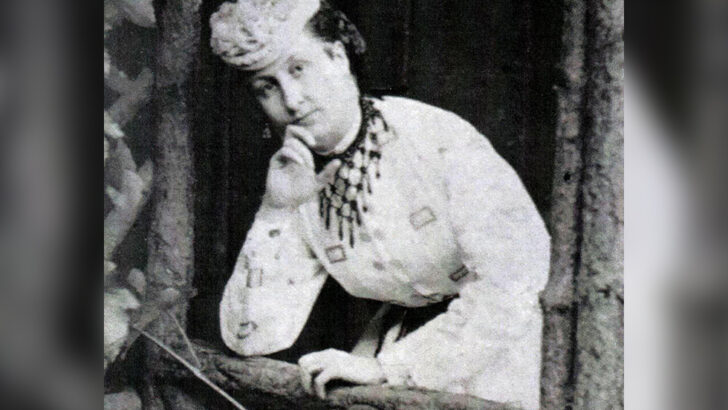The Golden Thread: The Life and Gifts of Miss Frances Ellis
by Patrick Heren (Gracewing, £20.00 / €25.00)
The past it was once said is a foreign country: they do things differently there. And so they do as this interesting book about a major benefactor reveals. This is an exploration of a Catholic world Irish readers may well be unfamiliar with, there being a tendency among some of us to regard English Catholics as being so different as not to be “real Catholics” in the Irish sense at all.
The publishers of this book have long cultivated the traditional Catholicism of England, especially in the “Second Spring”, as the revival of Catholic religious life was called in Victorian times.
This book, by a retired technology journalist, explores a very interesting aspect of that revival.
Here in Ireland during the 19th century, there was a massive programme of church building, both urban and rural. After the Catholic Emancipation Act of 1829, there was felt a distinct need to build new churches everywhere, more in keeping with the open and central role of Catholicism in the Island? A large but now incalculable amount of the funds for Ireland came from North America, that must have amounted to many millions.
In England the situation was different. In a country where Catholics were in a distinct minority, churches were needed but not quite on the scale as in Ireland.
Problem
Much the same problem existed in England. Irish and Italian emigration had added to the Catholic population of the country, and the surviving British Catholics were revived in spirit. This book recounts the passion of one individual to drive a building programme in England.
Over a number of years Miss Frances Ellis funded the erection of some 40 churches. That done, she then presented the rest of her fortune to the Pope for his own purposes. Most of her money was dispersed between 1901 and 1910, during the reign of King Edward.
Patrick Heren has assiduously researched this amazing achievement in great detail. At the heart of the book is a chapter devoted to “A Scandalous Episcopal Dispute”, which details the feud between Archbishop Francis Bourne, later Cardinal Bourne, in Westminster and Bishop Amigo in Southwark. While Miss Ellis is altogether an admirable and dedicated lady, the details of this feud make even now unpleasant reading. When strong personalities are in conflict in ecclesiastical affairs, as in politics, only damage can be the outcome.
This is not mere dry archival catalogue, but in its way a studied account of Catholic life at the parish level that makes fascinating reading for the social and historical reasons”
However, this book is about the devotion of a single individual rather than Church politics. She perhaps is the sort of person that every period of history needs. She is the good and kindly person on whom parishes depend.
Out of the 290 pages of this book, however, some 150 are devoted to a gazetteer dealing one by one with the churches she funded. This is not mere dry archival catalogue, but in its way a studied account of Catholic life at the parish level that makes fascinating reading for the social and historical reasons.
The buildings are in a range of styles, many strikingly modern for their day, others with deliberate echoes of Romanesque but not Gothic. If I still lived in England I would travel to see many of them. Many, in keeping with the need of the day, were intended to meet are small and local.
Miss Ellis had been born into an Anglican family, but eventually became a Catholic, much moved by what she saw of the work of Catholic nuns in Ramsgate and Cornwall. Her fortune, which she inherited, she managed with great care. The monies that thus accrued were what she devoted to church building.
Heren draws on her own letters (often ill dated alas) to build up a picture of the woman and her life, both public and spiritual.
This is a book which will provide those familiar with Southern England, from Cornwall to the Home Counties, with interesting insights in the course of which is revealed just how different the life of Catholic England was and indeed is.


 Peter Costello
Peter Costello Miss Frances Ellis in a moment of rest
Miss Frances Ellis in a moment of rest 